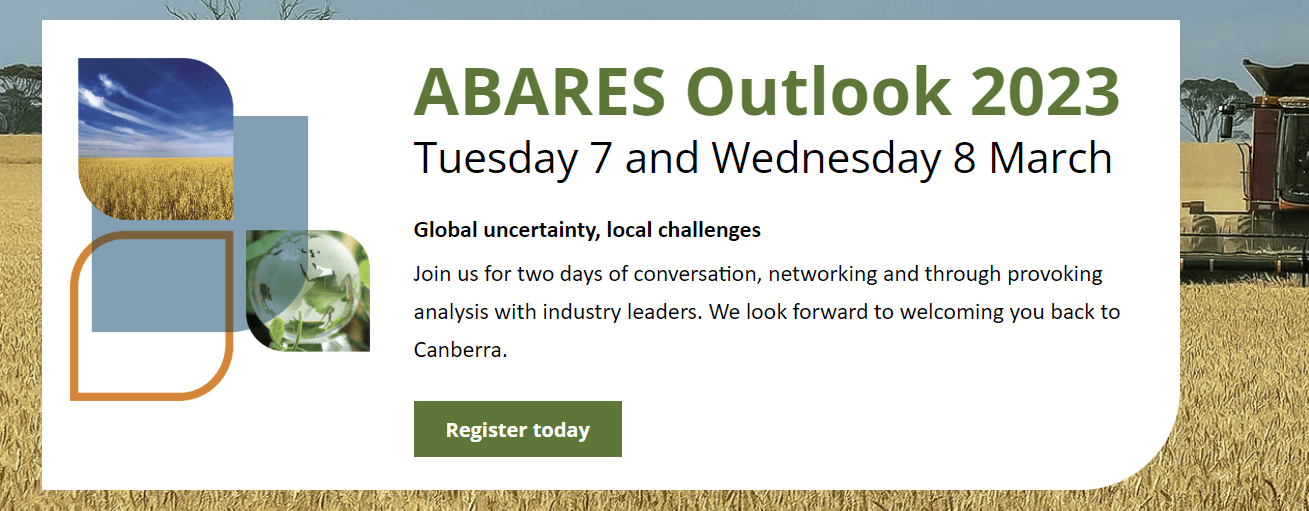
Crawford Fund at ABARES Outlook Conference

The Crawford Fund’s ACT Committee is hosting a Doing Well by Doing Good session at the upcoming ABARES Outlook Conference, which this year will explore the highly topical theme ‘Global Uncertainty, Local Challenges.’
The Crawford Fund session, Supporting the future of regional agriculture, will be held on 7 March, 2-3.30pm for those attending.
The session will explain international agriculture for development in the context of challenges including climate change, COVID and conflict, and highlight the findings of international analyses and of our own two commissioned Crawford Fund’s Doing Well by Doing Good reports – real and lasting social, economic, environmental and cultural impacts, as well as capacity building and science diplomacy.
The overview speaker is Dr Wendy Umberger, Chair, ACIAR Policy Advisory Council and member of the Crawford Fund SA Committee, former President of AARES.
Wendy will be followed by three speakers presenting on lasting impacts around significant issues in Australian and regional agriculture, namely:
- Germplasm Conservation, Exchange and Use
Dr Sally Norton, National Leaders, Australian Grains Genebank - Biosecurity
Dr Helen Scott-Orr, Crawford Fund NSW Coordinator and inaugural Inspector-General of Biosecurity - Private Sector Involvement
Dr Leigh Vial, Board Member, Sunrice Australia, ACIAR Project Leader and farmer
The three vignettes will exemplify the diversity of work underway, how they address key challenges now and into the future, the opportunities for the next generation of researchers, the broad impacts for our region and Australia and for the researchers personally and professionally.
All speakers will be part of a Q&A session as well as a panel discussion to focus on ‘outlook’ for future regional agriculture.
The new coordinator of the ACT Committee, Dave Shearer, will chair proceedings.
So if you are getting along to ABARES Outlook this year, don’t miss our session to find out more about “Doing Well by Doing Good”.
We hope you come to same conclusion as us. Despite the proof positive from benefit-cost analyses finding a ratio of 10:1 on investment, and the less quantifiable social, environmental and diplomatic benefits in-country and to Australia of investing in international agricultural research for development (Ag4Dev), the proportion of Australia’s development-assistance budget is currently receiving only around 2.5 per cent. We firmly believe it is in Australia’s interests to increase the proportion of its development-assistance budget invested in Ag4Dev. A summary of our reports is here.
